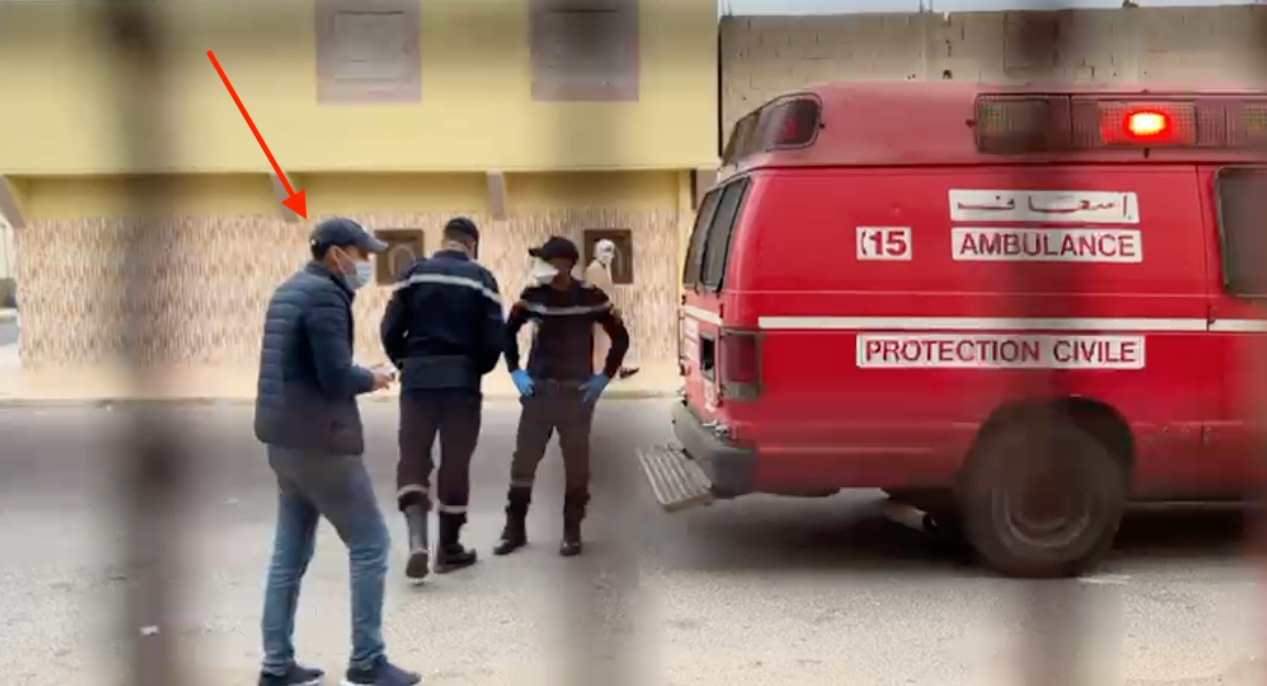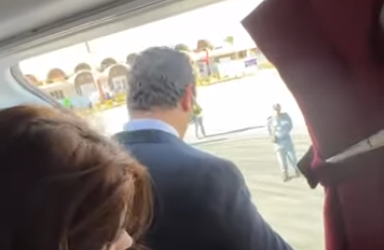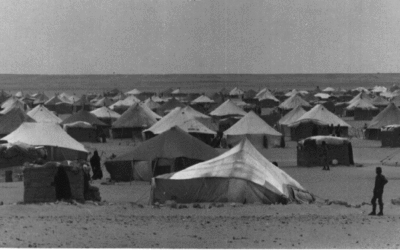WASHINGTON, D.C./Boujdour, Western Sahara, May 11, 2022 — Morocco sent an ambulance to the Khaya home in Boujdour, purportedly to provide medical services to the American guest who is on Day 9 of a hunger strike. Ruth McDonough stopped eating in protest of Moroccan Occupation forces’ human rights abuses. However, both Sultana Khaya and Waara Khaya recognized the occupants of the ambulance to be the very men who carried out the human rights abuses, including rape. They were accompanied by the district commander, Siddik Lalou, who is the agent responsible for pouring toxic substances inside the Khaya home.
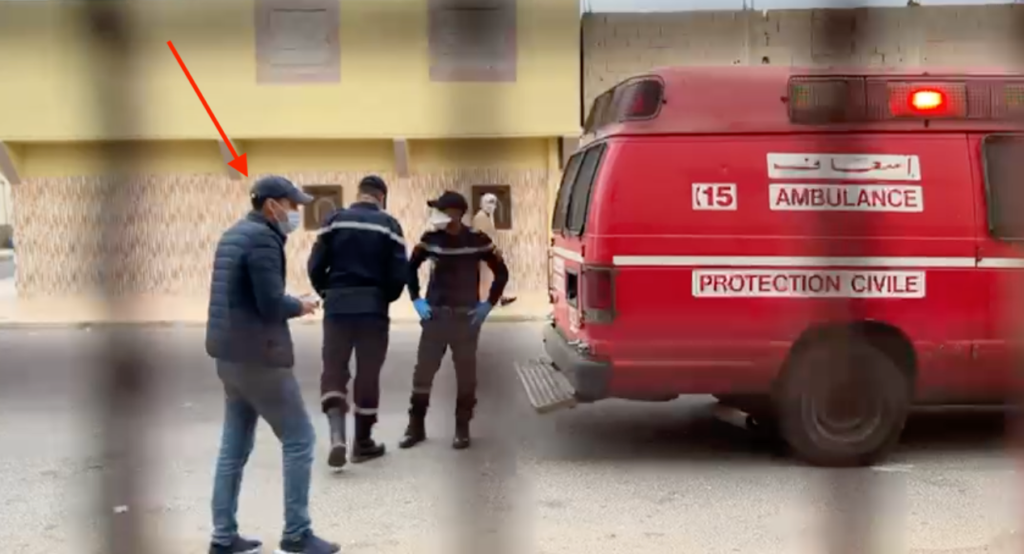
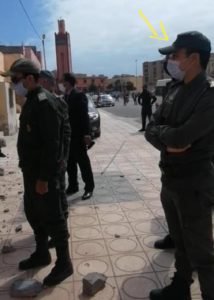 The ambulance arrived at the house on the afternoon of May 9th demanding to take McDonough to a hospital. In previous visits, they have kicked down the door of the house to violently enter. This time, they knocked and greeted Sultana Khaya as if they had never met her before. Sultana shouted their names and called out to them, “How could a criminal be a healthcare worker?”
The ambulance arrived at the house on the afternoon of May 9th demanding to take McDonough to a hospital. In previous visits, they have kicked down the door of the house to violently enter. This time, they knocked and greeted Sultana Khaya as if they had never met her before. Sultana shouted their names and called out to them, “How could a criminal be a healthcare worker?”
McDonough is fasting in support of Sultana Khaya’s list of demands to the Moroccan occupiers:
- Permanently stop the rapes in the Khaya home.
- Permanently end the siege of the Khaya home.
- Allow an independent, non-partisan, international human rights organization to enter the Khaya home in Boujdour to investigate and report what has happened for the public record.
Sultana Khaya is a Saharawi human rights defender promoting the right of self-determination for the Saharawi people and ending violence against Saharawi women, through nonviolent efforts. She serves as the president of the Saharawi League for the Defense of Human Rights and the Protection of Western Sahara’s Natural Resources and is a member of the Saharawi Commission against the Moroccan occupation (ISACOM). She was shortlisted for the Sakharov Prize and the winner of the Esther Garcia Award. As an outspoken activist, she has been targeted by the occupying Moroccan forces, enduring abductions, beatings, rapes, and having one eye gouged out.
Just Visit Western Sahara is a network of groups and individuals committed to justice for the Sahawari people, protection of their human rights, respect for international law, and encouraging tourism to reveal the beauty and appeal of travel to Western Sahara.

